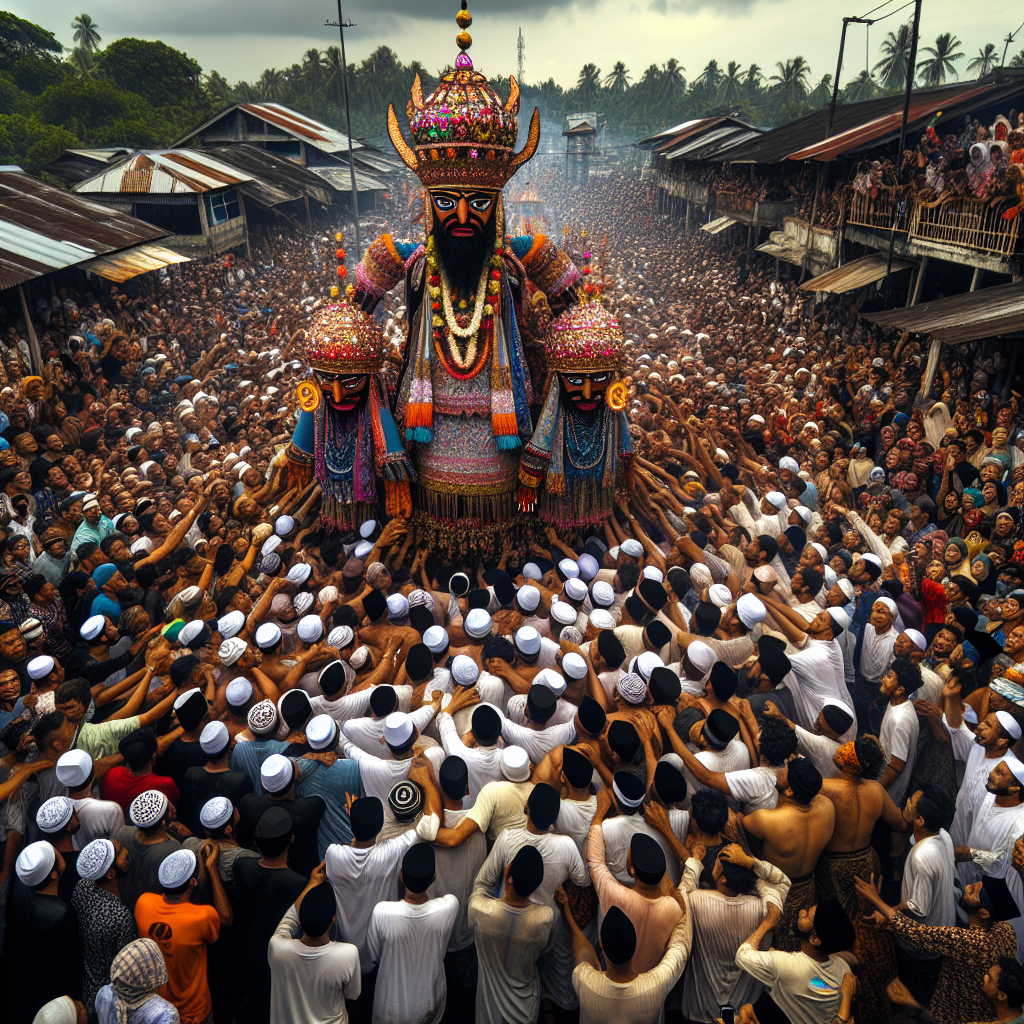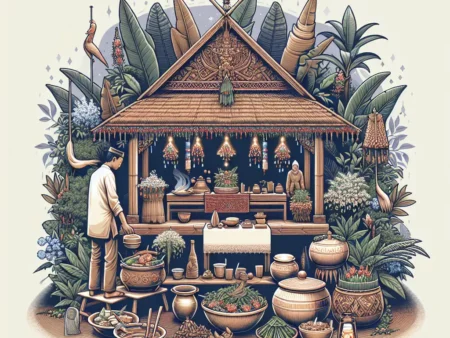Ritual Tabuik di Pariaman: Mengenang peristiwa Karbala dengan prosesi unik dan penuh makna.
Ritual Tabuik di Pariaman: Mengenang Kisah Karbala
-
Table of Contents
Ritual Tabuik di Pariaman: Mengenang Kisah Karbala

Introduction
The Tabuik ritual in Pariaman, Indonesia, is a unique cultural event that commemorates the tragic events of Karbala. This annual ritual holds great significance for the local community, as it serves as a reminder of the sacrifices made by Imam Hussein and his followers. The Tabuik ritual is not only a religious practice but also a cultural heritage that has been passed down through generations. In this article, we will explore the history, significance, and cultural aspects of the Tabuik ritual in Pariaman.
History of the Tabuik Ritual
The Tabuik ritual has its roots in the Battle of Karbala, which took place in 680 AD. Imam Hussein, the grandson of Prophet Muhammad, and his followers were martyred in this battle. The tragedy of Karbala holds immense importance for the Shia Muslim community, as it symbolizes the struggle against oppression and injustice.
The Tabuik ritual was introduced to Pariaman by Shia Muslim traders who migrated from India in the 19th century. These traders settled in Pariaman and brought with them their religious and cultural practices. Over time, the Tabuik ritual became an integral part of the local culture and gained popularity among the community.
Significance of the Tabuik Ritual
The Tabuik ritual is a way for the Shia Muslim community in Pariaman to express their grief and commemorate the martyrdom of Imam Hussein and his followers. It serves as a reminder of the values of sacrifice, bravery, and standing up against injustice. The ritual also promotes unity and solidarity among the community, as people come together to participate in the event.
The Tabuik ritual is not only significant for the Shia Muslim community but also for the wider Indonesian society. It showcases the diversity and richness of Indonesian culture, as well as the religious tolerance that exists in the country. The government of Indonesia recognizes the importance of the Tabuik ritual and has designated it as an intangible cultural heritage.
The Tabuik Ritual: Procession and Performances
The Tabuik ritual in Pariaman is a grand event that takes place annually during the Islamic month of Muharram. The ritual begins with a procession, where a replica of the shrine of Imam Hussein is carried through the streets of Pariaman. The replica, known as the Tabuik, is beautifully decorated and adorned with flowers and colorful fabrics.
During the procession, participants recite prayers and hymns, expressing their grief and devotion. The atmosphere is filled with a sense of solemnity and reverence. The procession culminates at the beach, where the Tabuik is symbolically buried in the sand, representing the burial of Imam Hussein.
After the burial, various performances take place, including traditional dances, music, and theatrical reenactments of the events of Karbala. These performances are not only entertaining but also serve as a medium to educate the younger generation about the history and significance of the Tabuik ritual.
Cultural Aspects of the Tabuik Ritual
The Tabuik ritual is not solely a religious practice but also a cultural event that brings the community together. It is an occasion for families and friends to gather, strengthen bonds, and celebrate their shared heritage. The ritual is deeply ingrained in the local culture and has become a source of pride for the people of Pariaman.
The Tabuik ritual also showcases the artistic talents of the community. The decorations on the Tabuik and the performances during the ritual are a testament to the creativity and craftsmanship of the local artisans. The intricate designs, vibrant colors, and attention to detail make the Tabuik a visual spectacle.
Conclusion
The Tabuik ritual in Pariaman is a significant cultural event that commemorates the tragic events of Karbala. It serves as a reminder of the sacrifices made by Imam Hussein and his followers and promotes unity and solidarity among the community. The ritual is not only a religious practice but also a cultural heritage that showcases the diversity and richness of Indonesian culture.
The Tabuik ritual is a testament to the religious tolerance that exists in Indonesia, as it is celebrated by both Shia and Sunni Muslims. The government’s recognition of the ritual as an intangible cultural heritage further highlights its importance.
Through the Tabuik ritual, the people of Pariaman keep the memory of Imam Hussein alive and pass on their cultural heritage to future generations. It is a celebration of faith, history, and community, and a testament to the resilience and strength of the Indonesian people.







